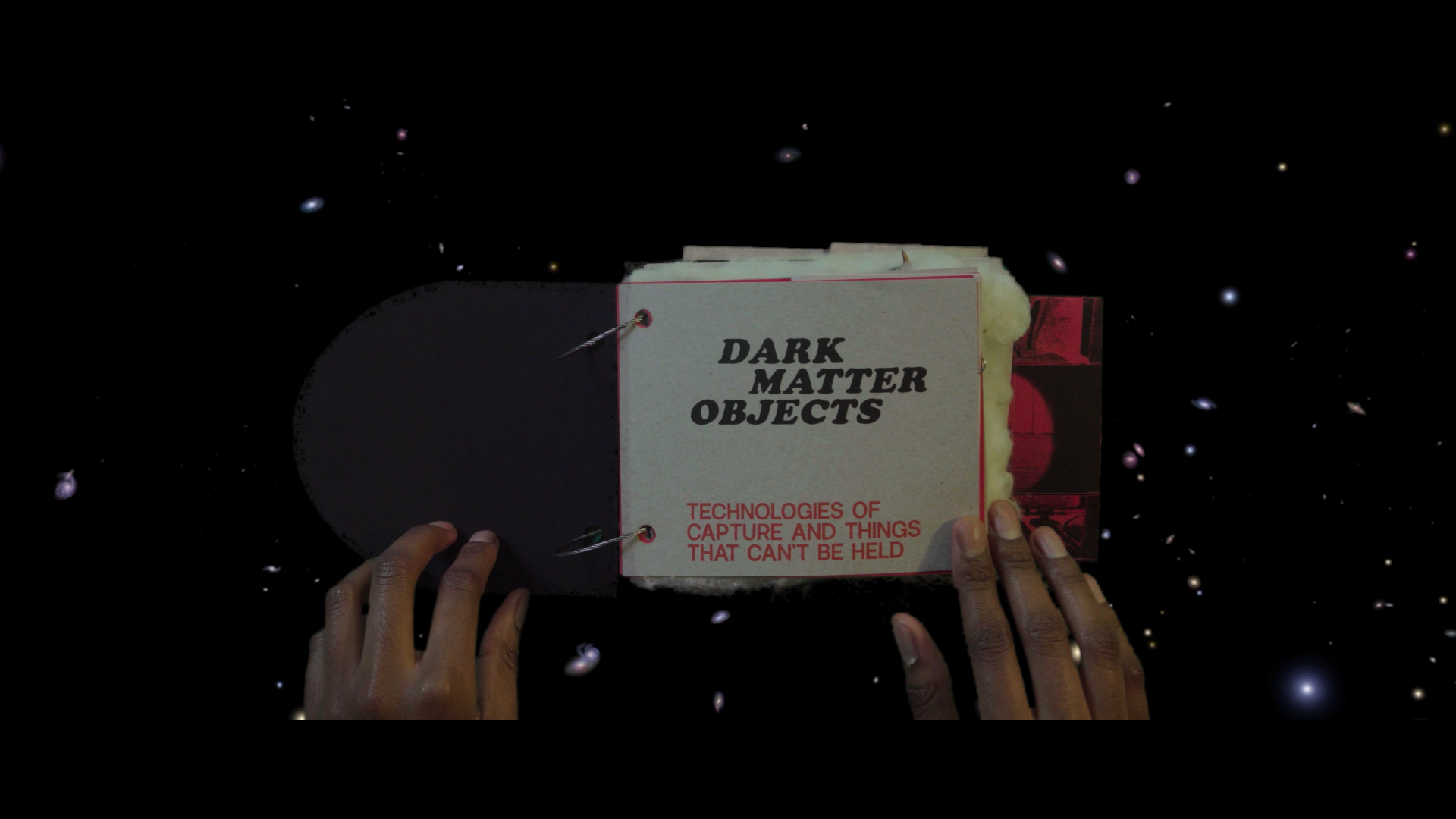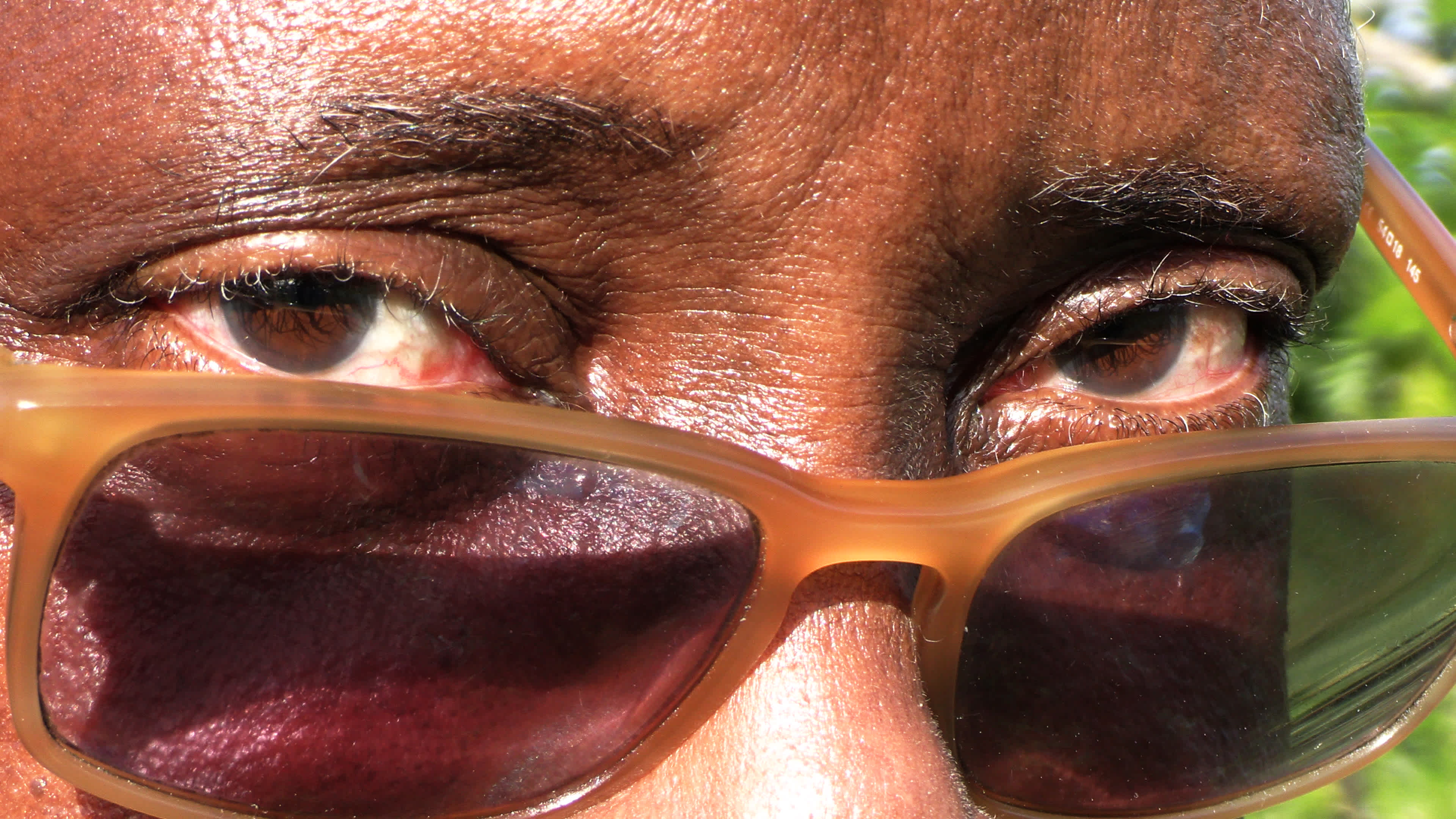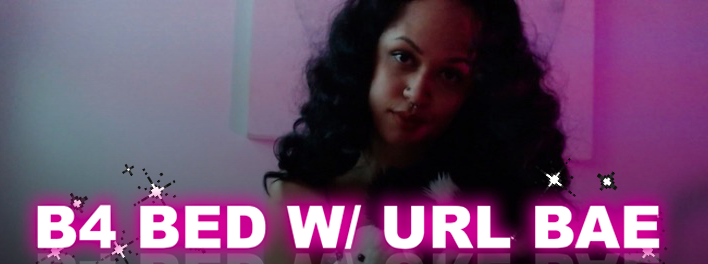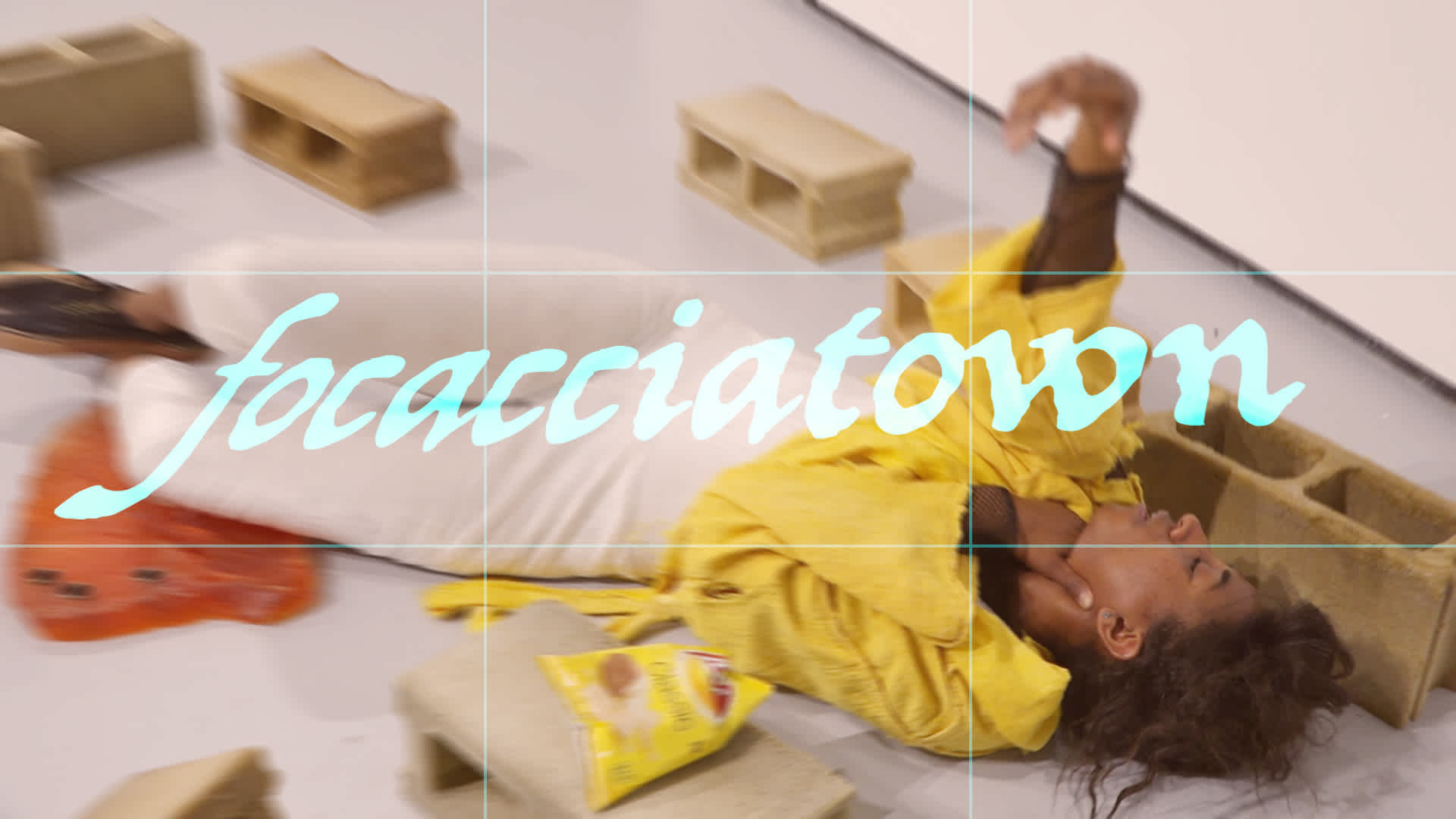
On View: October 14
Video Viewing Room
Screening Time
The Video Viewing Room series presents recent video works and archival recordings. This online initiative revives The Kitchen's longstanding Video Viewing Room—a dedicated space within our buildings from 1975 through the early 1990s.
This Video Viewing Room features a performance recording of Richard Kennedy’s opera Fubu Fukú (2020), along with images and an accompanying text by the artist.
“The Poetics of Messiness”
My best subject in school was always history. At Stephen Vail Middle School, the focus was not on comprehension or critical understanding, rather regurgitation and the ability to pass all five sections of the Ohio Proficiency tests. Mr. Packert, my eighth grade American History teacher, and I had a tense relationship. RJ you are so bright and your future could be so many things, but you will never make it with that bad attitude of yours. I will never forget the hollow click of the projector and the excitement on Mr. Packert’s face when he announced, Kids, today we are going to learn about one of the foundational ideas of our great USA: Manifest Destiny. While the other kids half listened, something inside of me told me that this idea was a hot mess. I tried to spark a conversation with my neighbor to disrupt the lesson, frantically trying to engage the Other kids in the class, creating a disturbance to block misinformation. If you are going to continue talking, you can go outside. I popped out of my desk and went into the hallway: Hey Nina, you know you better save me a seat at lunch, I do not have lunch detention today honey. The door flew open and he came out with a red face, blue wagging finger, and another boring lecture about respecting American History. It seemed so ironic that he would demand respect after trying to smother me with one-sided information. The most important lesson I learned in American History that day was how to use stunt queen tactics to disrupt colonial educator performance practices.
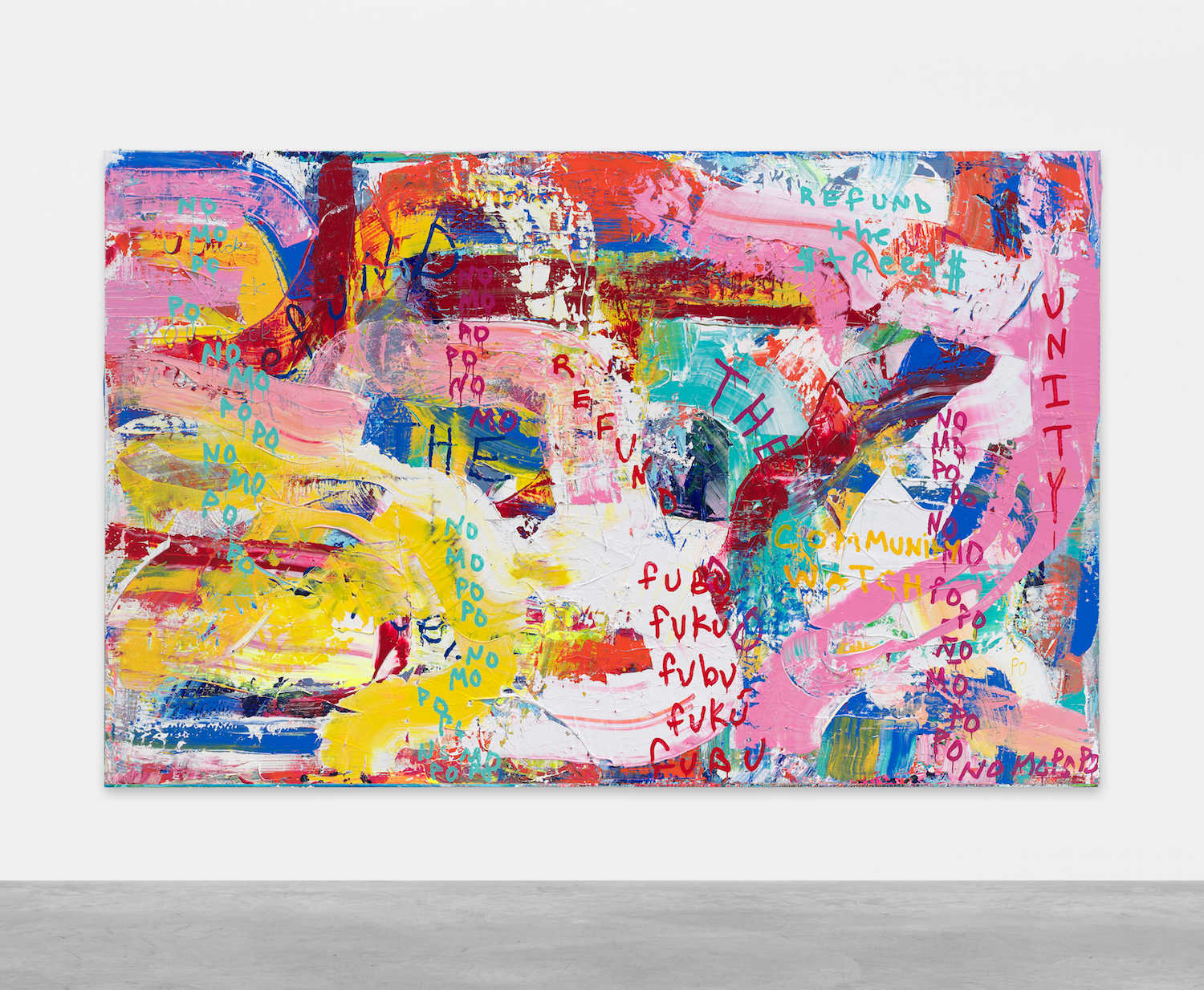
I moved to Berlin abruptly in the fall of 2019. After 15 years in New York, it was time. I traveled between the USA and Europe at least 12 times in 7 months until the coronavirus grounded all of us. My last version of New York was up and down; I survived on an amusement park diet to cope with American reality. The Black Death Spectacle of summer 2020 hit differently. Living abroad, I watched as Americans broke quarantine and took to the streets in protest. I felt helpless witnessing the American response from Berlin, wondering why I was homesick, when home was sick? I began to ask myself questions that at times left me paralyzed and numb; through this immobilizing non-feeling I turned inward and showed up in the studio to do my part to heal the collective.
I have rejected boxes and any assumed cultural domination my entire life. Thriving in opera, ballet, and other forms of European classical music, I learned to pursue hidden information, leading me to excavate new myths. My practice collapses high and low art forms through the synthesis of opposing concepts. The tension between what we are taught and the truth inspired me to write FUBU FUKÚ. The performed interrogation requires the audience to suspend linear time and unlearn myths of global colonial histories to excavate diasporic queer dreams. Digging in the rubble of what we thought we knew, together, we find useful debris and things to throw on the fire. Simultaneously clearing space for the new opera house, constructing a new proscenium, and leveling the hierarchies of seeing.
I’m interested in telling new stories that history would rather forget. I use opera as a Cultural Trojan Horse, filling it with radical ideas and personalities ready to take on stubborn gatekeepers. With the curtain drawn on live performances and nightclubs, I began to imagine the decay of the traditional opera house and the possibilities to raid the costume closets and rave in the rubble. Box seats have long been a status symbol of the elite, a display of extravagant watching—often requiring its own script. Viewing the world through a mask, and interacting with essential workers through glass, we all began to occupy box seats, collapsing one of the longest-standing signs of extreme wealth into the everyday. FUBU FUKÚ is a night ritual, swan song, and a message in a bottle home. Creating barriers to travel distance, re-writing history, and icing the black body to initiate performance recovery in real time; the work focuses on the exploration of melting provocative images and forbidden possibilities. I always look to the liminal space, to the creases and the edge; FUBU FUKÚ gives form to queer gesture by flipping opera and time inside out.
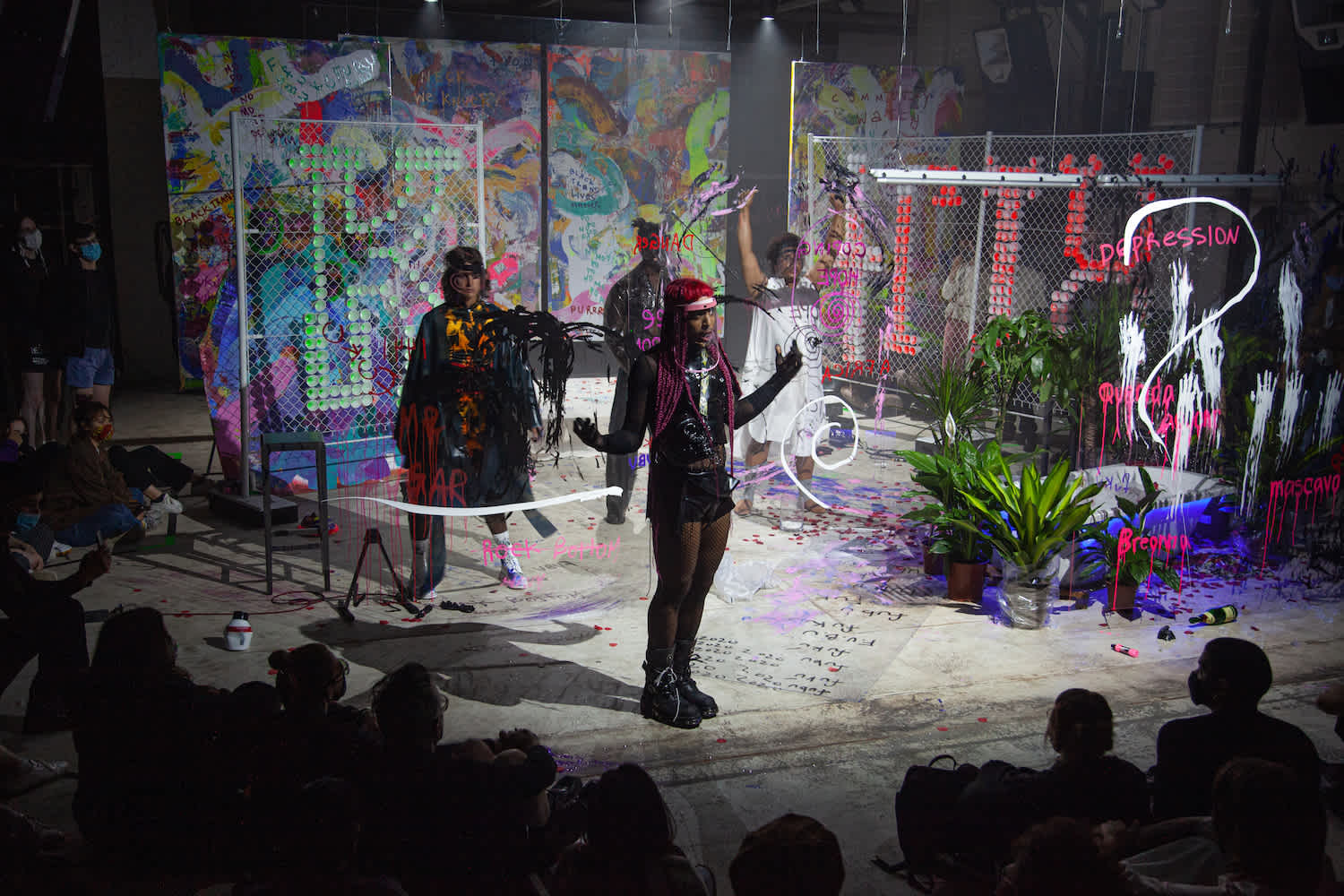
As protests erupted around the world this summer, I sat in my apartment anxious but hopeful. If I could not march inside of the resistance, I could organize my energy and send my magic through art and internet waves. After so much time in isolation, it was clear that the focus should be on radical self-love and creating new ways to build community during these difficult times. I met PK, Fernando, and Miss Hollywood in Berlin night spaces, and they inspired me to create a new work for them in operatic space. FUBU FUKÚ is the first opera I have made without Rashonda Reeves and Xander Gaines, who are crucial to my work. I wanted to build on to the foundations of my practice with new co-werkers to connect Berlin and New York queer night worlds through operatic form. Repetition, looping, and language are constants in my practice and these queer meditations open a portal between then and now, true and false.
What manifest destiny taught me is that if you occupy enough space with an idea, it could lead to a memorable non-performance by a dedicated Midwest educator and that performance could inspire an opera that queers Antão Gonclaves’s abduction of Black bodies on the west coast of Africa. Bridging the time warp through Berlin in the middle of a global pandemic, rejecting history as we know in favor of a more inclusive future that is both already here and forever unknown. An infinite loop, together yet broken open, American amnesia, forgotten fuku of a karmic queen.
—Richard Kennedy, October 2020
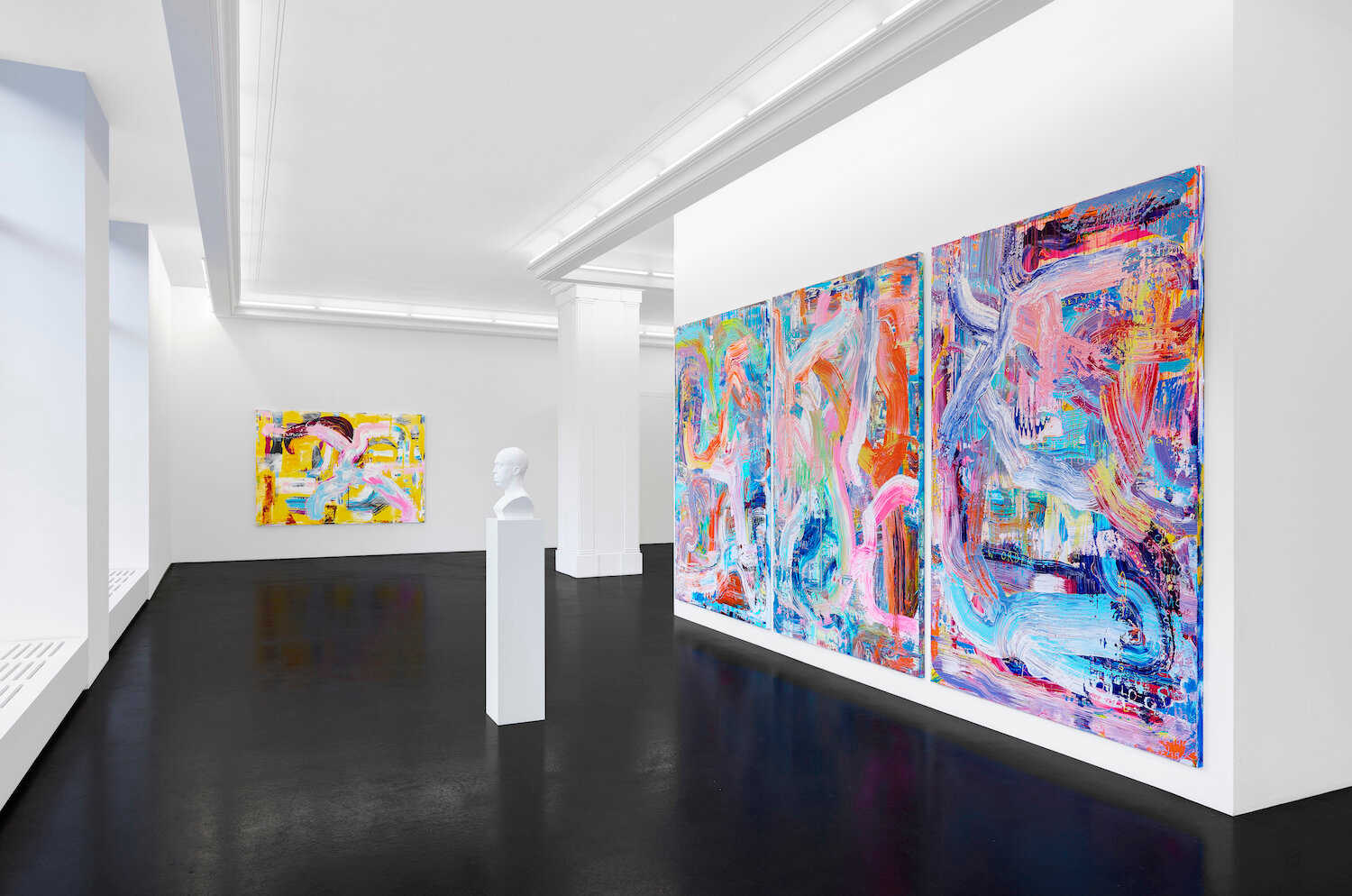
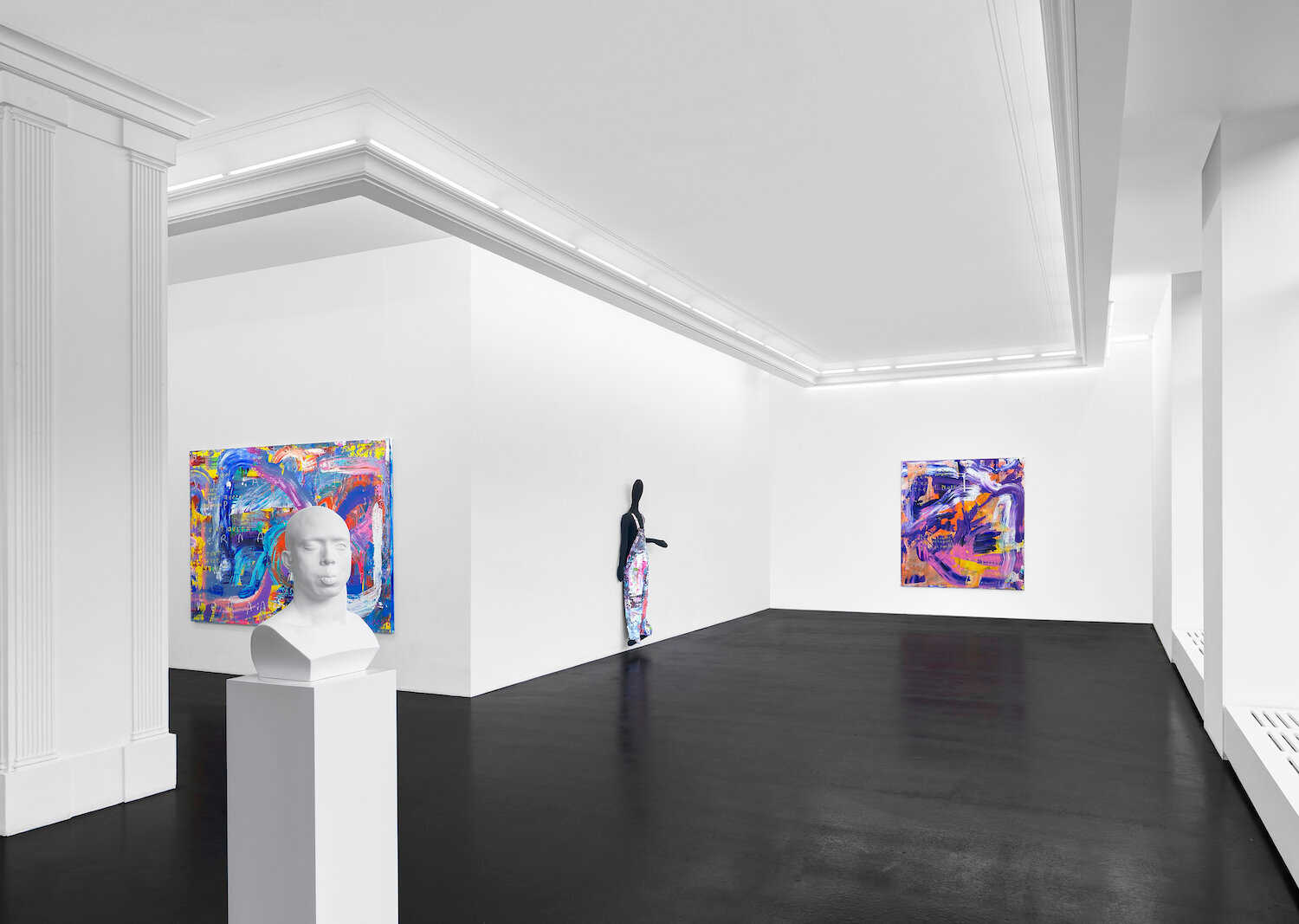
Bio
Richard Kennedy (b. 1985, Long Beach, California) is an artist, experiential composer, and librettist originally from Middletown, Ohio and currently living in Berlin, DE. They received their MFA from the Milton Avery Institute at Bard College. Kennedy is a 2019 MacDowell Colony Fellow and recently completed residencies at Open Forum Berlin and Mana Contemporary. Kennedy presented two solo exhibitions at Peres Projects in Berlin, (G)Hosting and Street Prophecy, a new opera FUBU FUKÚ, and currently has work in Studio Berlin at Berghain. Their Collapsed Operetta “A Touch of Elegance” premiered at the Institute of Contemporary Art, Virginia Commonwealth University curated by Amber Esseiva in the fall of 2019. In 2020 Kennedy was scheduled to perform the opera Black Rage at the Zabludowicz Collection and participate in a group exhibition at the Palais de Tokyo, curated by Marie-Ann Yemsi (both are postponed until 2021). They recently presented solo performance pieces at The Studio Museum in Harlem, MoMA, The Shed, The Kitchen, and BOFFO Performance Festival. In November 2020, Kennedy will open a new exhibition Limp-Wristed at Nuno Centeno in Porto, Portugal.
Performance Credits
The World Premiere of Fubu Fukú was at SimCity 2020, July 16 & 17, 2020, Trauma Bar Und Kino, Berlin. Curated by NEW MODELS.
Filmed & Edited by LIL INTERNET for NEW MODELS Additional Camera: Carly Busta
Original Score by Richard Kennedy
Cast: Richard Kennedy (Princess Fubu Fukú), Ms. Hollywood (Queen of the 7-faced Swaggots), Fernando Casablancas (Antoine Gonçalves), PK Gyaba (Sugar), Peter Fonda (Guitar Player)
Costumes: Florian Máthé & Richard Kennedy
Hair: Sean Bennet
Environmental Design: Sean Soave
DJ Set: CEM
Additional Music: Adamski feat. Seal, “Killer”; Tyler Wilcox, “Men are Weak”; Tyler Wilcox, “ChrisTy”; BEARCAT, “Start the Fire”; Mahalia Jackson, “On Sunday”; Jasmine Infiniti, “Ghettro”; Rihanna, “Goodnight Gotham”
Thanks to Peres Projects, Berlin
Produced and Funded by: TRAUMA BAR UND KINO, Troels Primdahl, Madalina Stanescu, Kyle Van Horn, Shaly, Rasmus Lauvring, Simone Antonioni, Xavier Perrone
Funding Credits
Video Viewing Room was initiated with the support of the NYC COVID-19 Response and Impact Fund in The New York Community Trust; annual grants from Lambent Foundation Fund of Tides Foundation and Howard Gilman Foundation; and in part by public funds from New York City Department of Cultural Affairs in partnership with the City Council and New York State Council on the Arts with the support of Governor Andrew Cuomo and the New York State Legislature.
